Did you know that when you burry a penny next to your plants you help them thrive? This simple yet effective gardening hack is easy to implement and can help to give your plants the best chance of success.
In this article, we will discuss the science behind this gardening hack and how you can use it to improve the health of your plants. Read on to find out more!
Gardens = Survival
Having a healthy vegetable garden is essential, especially in times of need. Not only can it provide food for a family, but it can also be the difference between life and death in hard times.
From a financial perspective, having a vegetable garden can also save money over buying produce from the store.
Restoring Soil Health
It is important to note that many commercial fertilizers contain chemicals that can harm humans and the environment. Therefore, natural remedies should be explored first, and the restoration of soil minerals and biodiversity should be a priority for gardeners.
By taking the time to look after your garden, you can ensure that your garden will look after you. The simple act of burying a penny next to your plants can help restore soil minerals and biodiversity, which in turn can help improve your plant’s health.
Bury A Penny Next To Your Plants – Main Benefits
- Improves Soil Health: Burying a penny in your garden helps restore soil minerals and biodiversity, which can help improve your plant’s health.
- Enhances Plant Growth: The copper in the penny can help reduce the number of fungal infections preventing plants from growing properly.
- Stimulates Root Growth: Copper helps stimulate root growth, resulting in more robust, healthier plants.
- Attracts Beneficial Insects: Burying a penny in your garden can attract beneficial insects, such as ladybugs and lacewings, which can help to control pests naturally.
- Prevents Disease: Copper helps to prevent disease, as it can kill pathogens in the soil that can harm plants.
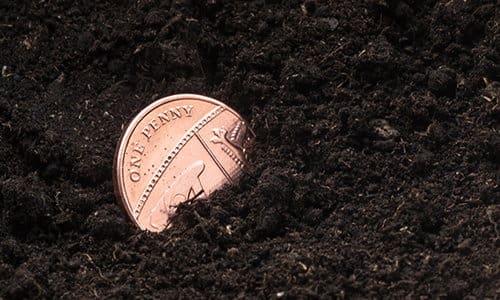
Soil Health
Burying a penny in your garden can positively affect soil health. The copper in the penny is released into the soil and helps to restore soil minerals and biodiversity, helping to improve the health of your plants.
Copper can also help reduce the number of fungal infections in the soil, preventing plants from growing properly. Copper can also help stimulate root growth, resulting in more robust and healthier plants. The chemical or scientific explanation for these positive effects is that copper is a potent antimicrobial and can help to promote healthy plant growth.
Related: How to Adjust the pH in Soil and Water for Abundant Harvests
Preventing Disease
Copper is a potent antimicrobial and can help to protect plants from infection.
One particular plant disease sensitive to copper is late blight, caused by the fungus Phytophthora infestans and can affect potatoes, tomatoes, and other members of the nightshade family.
Copper can also help to protect plants from other soil-borne pathogens, such as fusarium, verticillium, and pythium. These pathogens can cause root rot, wilting, and stunted growth in plants.
Copper is toxic to these pathogens and can help to prevent their spread.
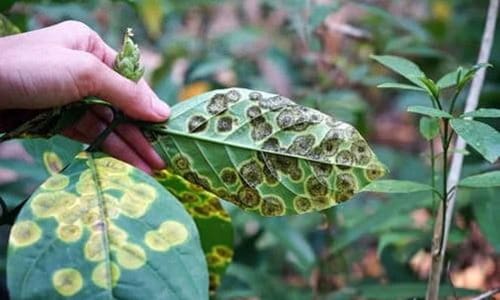
Healthy Roots
The copper in a penny can also help stimulate root growth, resulting in more robust and healthier plants. This is one of the main reasons you have to remember about why you should bury a penny next to your plants.
Healthy roots are essential for a plant’s growth and development, as they can extract nutrients and water from the soil. Roots are also crucial for anchoring the plant and providing stability.
When copper is released into the earth, it helps to stimulate the growth of new root cells, which can result in more robust and deeper roots, which allows the plant to absorb more nutrients and water, which can help to promote healthy growth.
Beneficial Bugs
The copper in a penny can also help to attract beneficial insects, such as ladybugs and lacewings, to your plants. Fortunately, these beneficial insects feed on pests, such as aphids and mites, which can damage plants.
The copper helps to attract these beneficial insects, as they are attracted to the metallic scent of the copper. These beneficial insects can help to naturally control pests, which can help keep your plants healthy and thriving.
Related: 10 Bugs You Should Never Kill In Your Garden
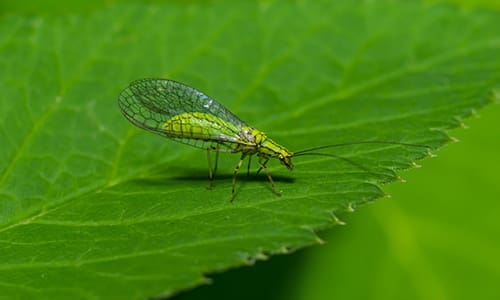
Where And How To Bury A Penny Next To Your Plants
The best site in your garden to bury pennies is near the base of your plants. You should bury one penny per plant or per square foot. The best time to add the pennies to the soil is when planting your seedlings or transplanting established plants.
You can recycle the pennies by taking them out and using them again, but it is best to leave them in the soil for a more extended period for maximum benefit. It would help if you replenished the pennies every few months or as needed, depending on the condition of your soil.
Don’t Overdo It
Too much copper can be toxic to plants and can cause them to become stunted or develop yellowing leaves.
To prevent this from happening, you should only add pennies to your soil in moderation and monitor the condition of your soil to make sure the copper levels remain balanced. If you notice the condition of your soil deteriorating, you should reduce the number of pennies you are using.

Potted Plants
You should bury one penny per pot and cover the penny with soil so it is not exposed. The penny should be placed near the base of the plant but not too close to the stem or roots. Make sure to monitor the condition of your soil to make sure the copper levels remain balanced.
Testing
You can test for the presence of copper in your soil using a soil test kit. The kit will measure the amount of copper in your soil and indicate if it is too much. If there is too much copper, you should reduce the pennies you use or stop altogether. Additionally, you should monitor the condition of your soil to look for signs of too much copper, such as yellowing leaves or stunted growth.
Gardening is an age-old practice that has helped humans to survive through the ages. Burying a penny next to your plants is a simple yet effective gardening hack that can help to give your plants the best chance of success.
Before you get started, testing a few pennies in a patch of soil is a good idea to understand how your environment will react.
Then, have fun and enjoy the beauty and bounty that gardens offer.
Now that you know the benefits you gain when you burry a penny next to your plants, make sure to also learn about why you should bury glass bottles in your garden.
You may also like:
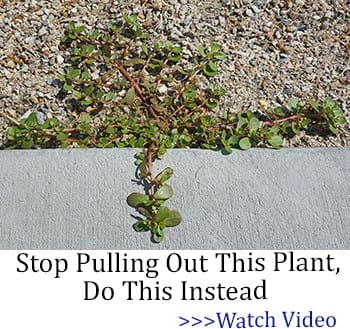 How To Fix Clay Or Sandy Garden Soil
How To Fix Clay Or Sandy Garden Soil
Cheap and Easy to Build Root Cellar in Your Own Back Yard (Video)
Boost Your Soil Quality With This Compost
What Happens When You Bury A Fish Head Under A Tomato Plant
If You Have This Plant in Your Backyard, You Will Never Run Out of Soap
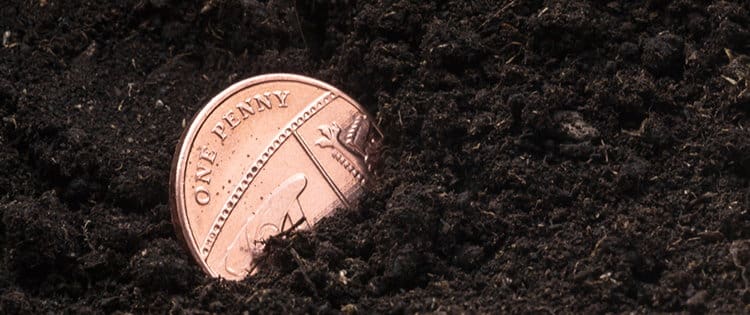

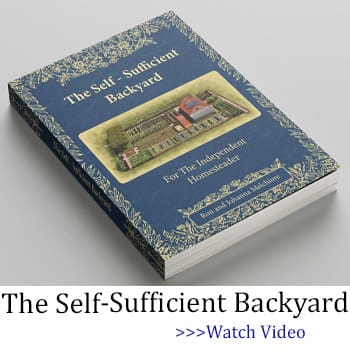



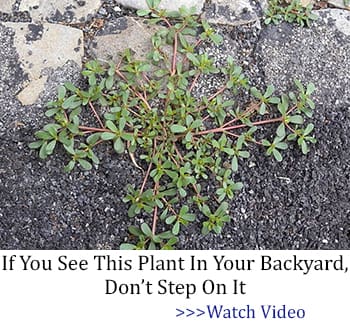
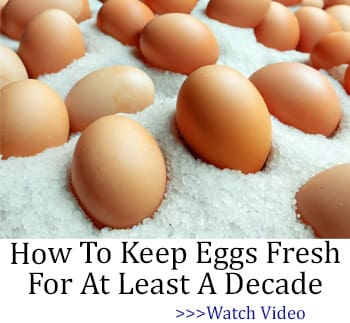

Pennies are a lousy source of copper: “virtually every one-cent coin made since late 1982 has a composition consisting of 97.5% zinc and 2.5% copper.”
Source: https://coins.thefuntimesguide.com/copper-pennies/
If copper is good for plants, why use zinc?
Zinc and copper are two of many minerals the body uses in the body to regulate metabolism, enhance immunity (as zinc helps as a defense against viruses), build better blood vessels and a few more things. Much of this relattes to our age because the older you get the less your body will process Vitamin B-12, B-1, Magnesium, D-3 and a few others but these are the big three. The amount of copper and zinc that would leach into the ground is not that great and absolutely will not be enough to cause any adverse health effects. I will admit that this article has changed my mind.
Doc Nelson
Hi Penrod. I cannot say whether a single penny used in this manner will provided the needed copper and zinc but to answer your question “why use zinc?” it’s because zinc is an important micro nutrient needed for vegetables and fruits. Just do a google search to learn more about zinc for vegetables and fruit production in orchards. Stay safe!
https://extension.umn.edu/micro-and-secondary-macronutrients/zinc-crop-production
at 76 I take extra zinc if I feel a virus “trying to catch me”. It does seem to help so I have no problem with adding a bit yo my garden.
I do that as well!